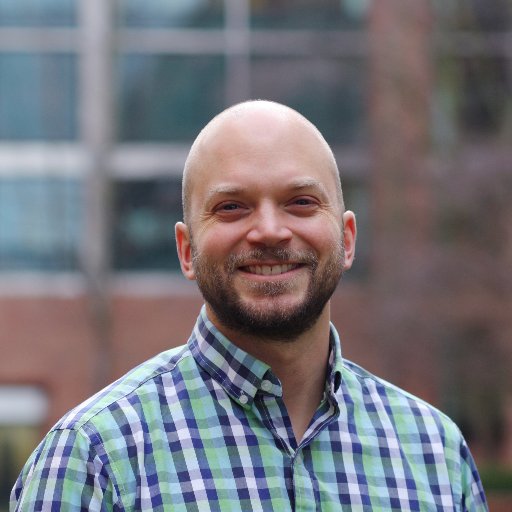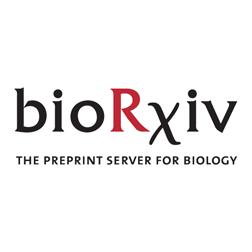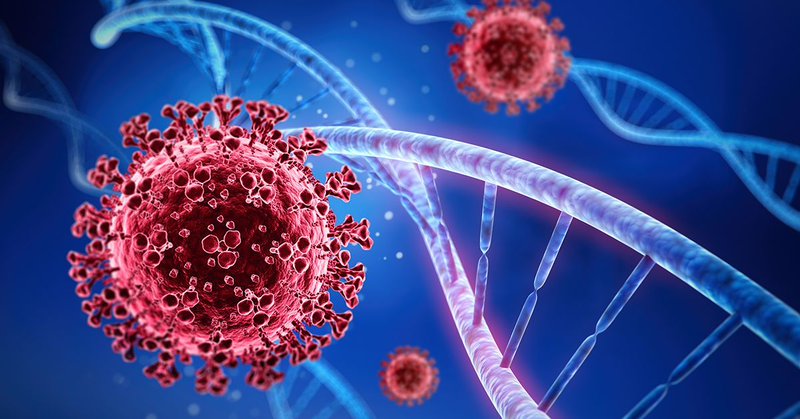
Matt Daugherty
@Daugherty_Lab
Followers
999
Following
481
Media
2
Statuses
268
Watching the constant battle between hosts and pathogens in the lab and in my kids.
San Diego, CA
Joined February 2018
RT @HarmitMalik: I am delighted to share the latest preprint from our lab, which was work that was conceived and led by @JTenthorey during….
biorxiv.org
Antiviral proteins often evolve rapidly at virus-binding interfaces to defend against new viruses. We investigated whether antiviral adaptation via missense mutations might face limits, which...
0
72
0
Great work from @lizfay20 and a team of undergrads she has assembled! So much interesting data in this paper (check out the paper and Liz’s summary). Definitely the first of many great papers from Liz on host diversity in immune responses!.
Our latest preprint from @Daugherty_Lab is live on bioRxiv! We explore the evolution and function of RIP kinases across diverse vertebrates and identify differential conservation of RIPK1-5 and several key associated proteins. 1/
0
3
18
Another great collaboration with @DengkeMa lab on the role of horizontal gene transfer (HGT) in providing novel functions to nematodes! Congrats to all, especially co-first authors Taruna Pandey and @ChinmayK98 !.
Interdomain horizontal gene transfer: @dengkema, @Daugherty_Lab and coworkers find that key rml-3 gene conferring nematode exoskeleton resilience against environmental toxins appears to stem from the bacterial kingdom .
0
4
19
RT @SamReckPeterson: New work from our @ASAP_Research team: Parkinson’s disease-linked LRRK2’s closest relative, L….
0
18
0
So great to reunite with all of these wonderful friends and scientists to celebrate such a fantastic mentor. Congratulations @HarmitMalik on all you've accomplished in the last 20 years!.
A privilege to watch trainees thrive in science & life. Huge thanks to 70+ who traveled from as far away as France for 20 yr reunion hosted by Aida de la Cruz, @psmitchej & @Daugherty_Lab. My heart is full (& our bellies). I wish all mentors can feel what I'm feeling right now.
0
1
20
This suggests that changes in enzymatic activity in host and viral macrodomains might be part of the ongoing host-virus arms race over ADP-ribosylation. More details in the paper. Exciting times to study ADP-ribosylation in the immune response and viral replication!.
0
0
1
But many macrodomains hadn’t been tested for enzymatic activity. Not surprisingly, many host and viral macrodomains are enzymatically active. What was surprising was that enzymatic activity has been lost several independent times in mammals as well as in alphaviruses.
1
0
1
We and others have been interested in functions of macrodomains, which can theoretically remove protein ADP-ribosylation. These are found in host immunity proteins and in several groups of viruses, including alphaviruses and coronaviruses.
1
0
1
Very proud of Sofia Delgado-Rodriguez's first first-author paper (with a lot of help from Andy Ryan)! And it made the cover! This is part of a fantastic special issue on ADP-ribosylation organized by @LeungLab and @FehrLab.
🎉 #PathogensMDPI, Vol. 12, Issue 5.🔖 Cover Story: Recurrent Loss of #Macrodomain Activity in Host #Immunity and #Viral Proteins by Sofia E. Delgado-Rodriguez, Andrew P. Ryan, and Matthew D. Daugherty @Daugherty_Lab @UCSanDiego .👉 #ADPribosylation
2
7
23
RT @drglasner: Also, check out my episode of “Let’s Meet the Virologists” to learn a little about me and my career. Thanks to @lbthackray f….
0
1
0
RT @drglasner: With #ASV2023 only a few days away, this seems like a good time to resurface here on Twitter. Come hear all about my researc….
0
1
0
Very proud of @underthelenns for her first first-author manuscript! She wrote a fantastic review on the evolution and mechanisms of 'tripwire' sensing of viral infection by the CARD8 and NLRP1 inflammasomes. Many more great things to come from Lennice!.
Excited to see that our review on tripwire effector-triggered immune sensing of viral proteases by CARD8 & NLRP1 is out! My first, first-author pub, and I was lucky to write it with @Daugherty_Lab and the support of fellow Daugherty Lab members.
0
2
25
RT @PLOSBiology: Innate immune #CARD8 mechanism for sensing #coronavirus & #picornavirus infection by detecting activity of #virus-encoded….
0
2
0
RT @ucsdbiosciences: Biologists led by the @Daugherty_Lab have identified a previously unknown way that our immune system detects viruses.….
today.ucsd.edu
Biologists have identified a previously unknown way that our immune system detects viruses. The immune protein CARD8 acts as a trip wire to detect a range of viruses, including the virus that causes...
0
4
0
@PLOSBiology Huge thanks to @BriBerryTea, @nandangokhale, @JKulsuptrakul, @lizfay20, @underthelens, @russellevance, @hydelab, @RamLabUW, and @psmitchej and all of the other authors not on Twitter.
0
0
4
Our paper on CARD8-mediated sensing of infection by SARS-CoV-2 (and other coronaviruses and picornaviruses) is now out in.@PLOSBiology.! Huge congratulations to all involved! More info and thanks to our many collaborators are in the thread below:.
journals.plos.org
This study describes an innate immune mechanism for sensing coronavirus and picornavirus infection by detecting the activity of virus-encoded proteases. Genetic variants among mammalian hosts affect...
New preprint out showing a cool new host- and virus-specific way that the immune system has evolved to sense coronavirus infection! .Congrats to everyone involved, especially force-of-nature first author @BriBerryTea! 1/.
2
18
69
RT @ChinmayK98: Got a chance to share our story on a podcast with @Daugherty_Lab! Also my first time speaking on a podcast 🥳 .Check it out….
open.spotify.com
PNAS Science Sessions · Episode
0
1
0
RT @PNASNews: Chinmay Kalluraya and Matthew Daugherty explain how vertebrates acquired a gene critical for vision from bacteria in the late….
0
3
0
RT @Facultyopinions: Bacterial genetic origin in vertebrate eye evolution: @atnjoly recommends this @ChinmayK98 @Daugherty_Lab study in @PN….
0
4
0
RT @LaskerFDN: A new study shows that IRBP, a protein necessary for vision in vertebrates, was acquired from bacteria over 500 million year….
0
3
0










